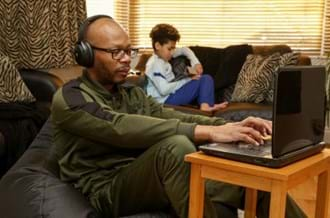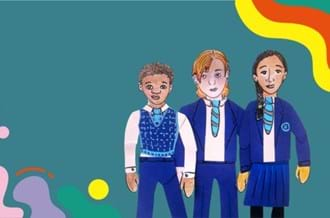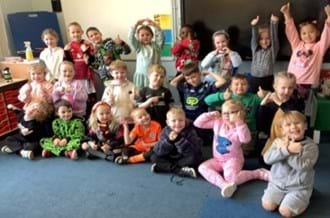How being brave boosts children's mental health
Children may need lots of encouragement to speak up about their worries. Sally Izon, Place2Be counsellor and School Project Manager at Glencoats Primary School, shares her three tips for helping them to do so.

When you think about being brave – which was the theme of Children's Mental Health Week this year – it’s important to strip it back and think about what this can mean for pupils.
Being brave isn’t about being some sort of superhero, it’s about little steps that you take each day. It may be about being able to answer a question in class; opening up to an adult about something that’s on your mind; plucking up the courage to go to assembly – an environment which can be overwhelming; or going into water for the first time.
This can lead to them having lower self-worth: they may think that no one wants to listen to them, or that they can’t tell anyone anything that’s on their mind.
Here are three tips to help pupils be brave:
- Try something new – ask pupils to do something that will push their physical and emotional selves, this could be in drama, music or sport, for example.
- Talk positively – encourage pupils to change the language that they use; rather than focusing on what they can’t do, turn this language around and get them to talk positively about how they can be brave.
- Have a sense of adventure – encourage pupils to not focus on the outcomes as much, but rather on the process of doing something new.
It’s really important for teachers to give children the opportunity to express themselves and ask questions.
One way to do this is by writing the name of each child on individual lollipop sticks and placing them in a tub – once a child has answered a question, or had the chance to talk, the teacher puts that child’s name in a separate tub. This helps the teacher to make sure that every child has had the chance to speak up.
Having a worry box in class – where children can write down their worries – can also help children to express how they’re feeling and open up.
There are lots of things in children’s lives that they may need to talk about, but that doesn’t mean it's an easy thing to do.Speaking out about something that’s going on in your personal life has potential risks attached to it. For example, in a counselling session, a child disclosed things to me that I knew were a safety risk. I had to explain that the police and social services would need to get involved. To a young child these actions may feel quite scary or worrying, so to talk openly, despite being aware of this situation, does take bravery.
But if we keep these things to ourselves then these thoughts are likely to fester, grow bigger and become more problematic.
Time to talk
At the school I work in, we have a self-referral service called Place2Talk, where children write on a slip of paper about what they’d like to talk to Place2Be counsellors about, and post in a special letter box in the school.
Children tend to want to talk about all sorts of worries. In one lunchtime session recently, I saw nearly every child talk about not being able to see one of their parents; they were sad and didn’t understand why. Place2Talk gave them a space to talk it through with a trusted adult. Taking that first step to talk to someone about what’s on your mind is really important. If there is no one to encourage these children to talk, however, they can get stuck in a negative spiral.
I’ve been going into primary school classes recently to talk about bravery and the emotions you feel before and after doing something brave. All the children have such wonderful examples, from learning to ride a bike, to swimming in the deep end of the pool.
And after you’ve done something once, it never seems quite so scary the next time – because you can say to yourself, “I can do it.”
This article was originally published on TES during Children’s Mental Health Week
News & blogs

Place2Be online parenting course now available to organisations
Place2Be's online parenting course helps working parents and carers feel better equipped to manage their parenting journey.
Read more
Three charities launch wellbeing video for young carers
Three charities have joined forces to launch a new video aimed at fostering the wellbeing and creativity of young carers.
Read more
“Know Yourself, Grow Yourself”: A look back at Children’s Mental Health Week 2025
During Children’s Mental Health Week 2025, we encouraged people to embrace self-awareness and explore what it means to them.
Read more



